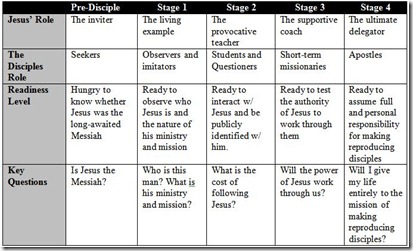 I am not talking about abortion. …Not yet anyway.
I am not talking about abortion. …Not yet anyway.
I support a woman’s right to choose between paper and plastic at the grocery store.
I support a woman’s right to choose what kind of light bulb she uses at home.
I support a woman’s right to choose whether or not she and her family have health care.
I support a woman’s right to choose what kind of food to put her children’s lunchbox.
I support a woman’s right to choose whether or not to carry a gun.
I support a woman’s right to choose when, where, and how to discipline her children.
I support a woman’s right to choose her religion and whether or not to talk about it in public.
I support a woman’s right to choose how she defines marriage.
I could go on and on about all the ways I support a woman’s right to choose.
But what I find so sadly ironic is that the same people who support a woman’s right to choose about whether or not to terminate her pregnancy are often the same people who do not support a woman’s right to choose all the things listed above. They want to give women the right to choose whether or not to have an abortion, but they don’t want to give women the right to choose between paper and plastic.
You know a great business idea for somebody? A puppy abortion clinic. Or maybe a kitten abortion clinic. You know how many stray dogs and cats there are on the world? Wouldn’t it be great if a pet owner could take their pregnant cat or dog into a clinic and have all the little puppies or kittens aborted? Then they wouldn’t have to deal with the mess of delivery, and standing outside Walmart for hours on end trying to get rid of puppies and kittens to strangers.
I am jesting of course, but do you know what would happen if somebody started an abortion clinic for puppies and kittens? There would be outrage! You might even get arrested for cruelty to animals. Who knows? Maybe someone from PETA would come and bomb your clinic.
And yet most people think nothing of it when we talk about aborting children. A woman has a right to choose what to do with her body.
But that’s just it. It is not her body. It is someone else’s body. A child’s body. It’s a little girl or a little boy. Do not they have the right to choose what happens to their body? Tell you what…. I support a woman’s right to choose as long as that same right is extended to the little girls and little boys. Let them be born and then when they are old enough to understand, give them a choice about whether they want to live or die.
People talk about how conservatives wage a war on women. I think it is time to start talking about the war on children. And unlike the so-called war on women, the war on children has millions of casualties.
Millions of babies have been killed, slaughtered, burned, and destroyed.
In this ongoing war on children, more children have been killed than all the Jews killed in the Holocaust.
Are you “Pro-Choice”? This post probably won’t convince you to change your mind. But if you want to remain “Pro-Choice,” please start to be consistently “Pro-Choice” and let women (and the rest of us) have the right to choose in the other areas of life as well.




 One of my pet peeves is how some Christians use “God Bless you” as a sort of greeting and salutation. This is how the conversations often go:
One of my pet peeves is how some Christians use “God Bless you” as a sort of greeting and salutation. This is how the conversations often go:
 The following comes from an email that was sent in to me through the “Contact Me” form on the right sidebar. I asked the sender if I could post it on this blog for others to respond to, and was given permission.
The following comes from an email that was sent in to me through the “Contact Me” form on the right sidebar. I asked the sender if I could post it on this blog for others to respond to, and was given permission.






 Want to get your book published? Do you have a manuscript and are seeking a publisher, or are thinking of writing a book, but don’t know where to begin?
Want to get your book published? Do you have a manuscript and are seeking a publisher, or are thinking of writing a book, but don’t know where to begin? Through my brainstorming, I think I found a way to “redeem the press,” that is, to remove some of the negative elements of the publishing industry, and add in some elements and principles of the Kingdom of God, specifically, elements of truth, generosity, and grace.
Through my brainstorming, I think I found a way to “redeem the press,” that is, to remove some of the negative elements of the publishing industry, and add in some elements and principles of the Kingdom of God, specifically, elements of truth, generosity, and grace.







 What non-negotiables would you require? What would be the best way for God to expand His rule over the earth?
What non-negotiables would you require? What would be the best way for God to expand His rule over the earth?

